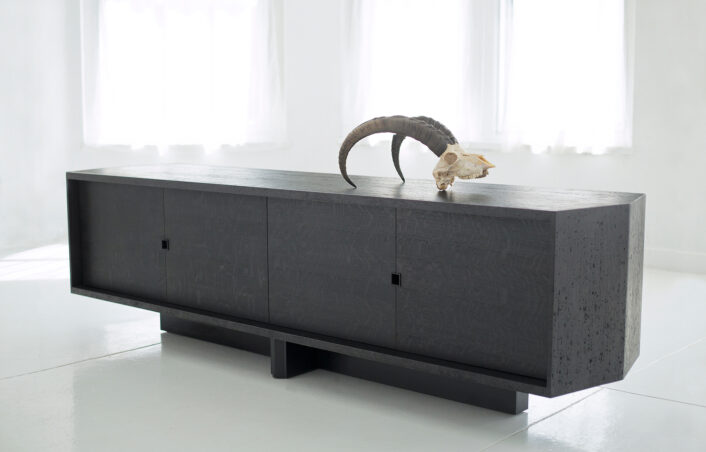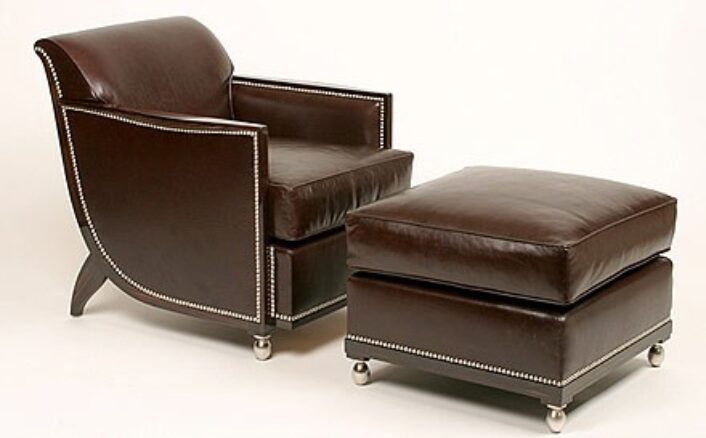Design
DeMuro Das
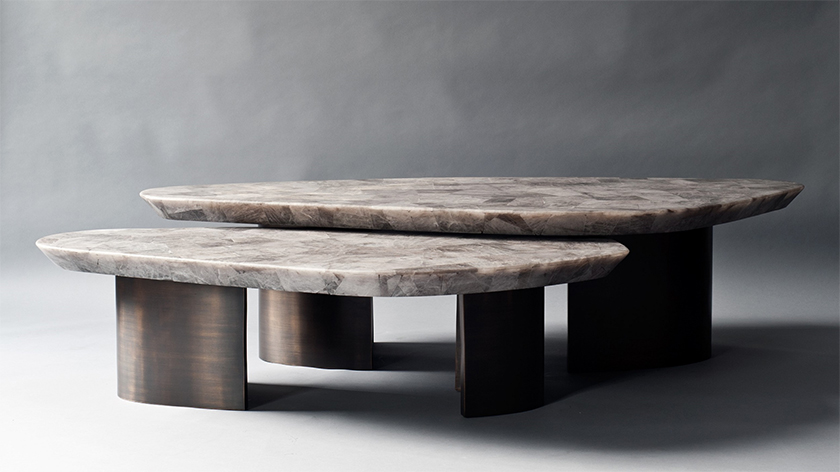
Ledge Center Table (nested), sculpted tabletop in leathered Smokey Quartz with an antique brass base.
Image courtesy of: DeMuro Das
Brian DeMuro and Puru Das began working together two decades ago and in recent years, they have evolved their domestic brand, Urbanist, to a successful international firm. They’ve said (courtesy of Platform Creative Lifestyles), “A lot of what we do is about melding craft techniques with a modern design language and approach. So, while being rooted in a craft-based culture helps orient our work, we are very interested in bringing those techniques into a contemporary idiom.”
The name change was a reflection of the pair’s evolution to an international brand with a New York showroom. This location, in addition to the initial one in New Delhi, is where you can find some of DeMuro Das’ amazing pieces; however there are several premiere showrooms across the country that also carry their products. For DeMuro Das, their name seamlessly reflects their story and personal journey up until this point!
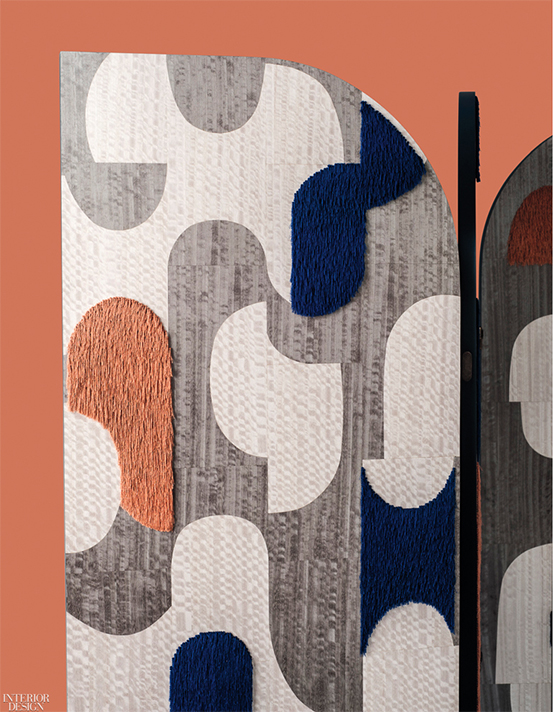
Nila Screen, a collaboration with the French accessories designer, Olivia Dar. Each panel is crafted with eucalyptus veneer marquetry, gray lacquer, and cast-bronze antique hinges. Dar embroidered the folding screen whose curved lines were inspired by Le Corbusier’s Capitol Complex in India.
Image courtesy of: Interior Design, photographed by: David Mitchell
The duo has tailored a system that works for them…on a daily basis, Puru runs the interior design/architecture studio and Brian oversees the factory. The two overlap on design and collaborate extensively both in furniture design and their interiors projects. It is through the interior design projects that inspiration arises for their furniture collection. For this segment, since the majority of his time is spent at the factory, Brian takes the lead.
Most important to DeMuro and Das is maintaining a connection to their roots; in such, their design practice stays connected to the Indian tradition of luxury. Inspiration comes from all over the world; but for this team, it stays embedded in history. Of course the materials’ quality is vastly important, as are collaborations.
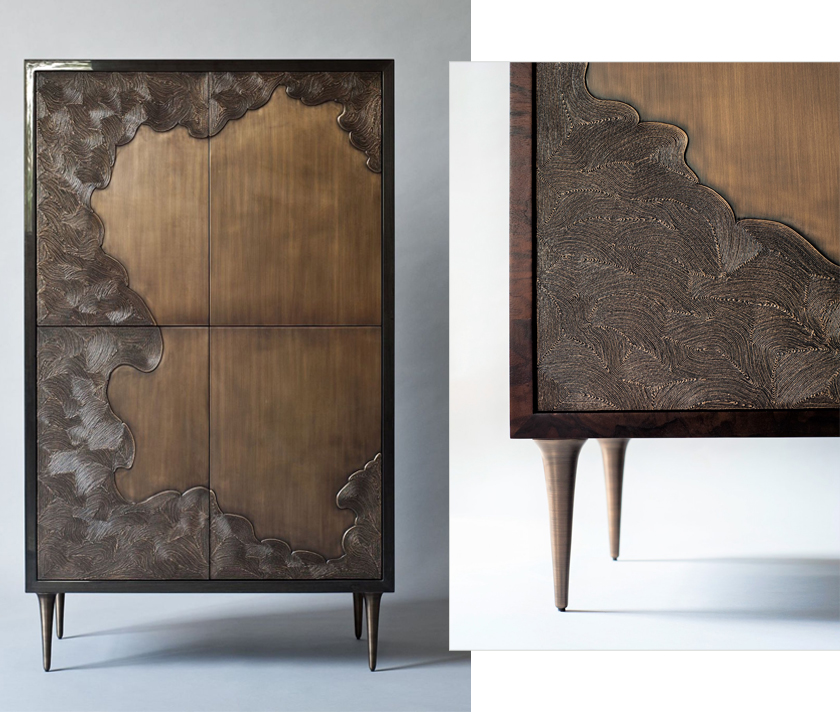
Nami Cabinet, designed in 2019.
Image courtesy of: Design Aspire Home
One piece that has garnered a lot of attention is the Nami Cabinet. The design was inspired by the sand-cast sculptures of Dhokra which are made by Central India’s nomads. The firm’s casting foundry uses traditional techniques to craft Nami’s pattern; they begin with coiled string and cast it into the solid bronze doors. Amazingly, it is the use of thread that creates the intricate pattern on the doors’ surfaces.
Additional influences for this stunning piece are thanks to travels to Japan. Inspiration came in the form of ancient Japanese woodblock prints, most recognizable was Hokusai’s “The Great Wave.”
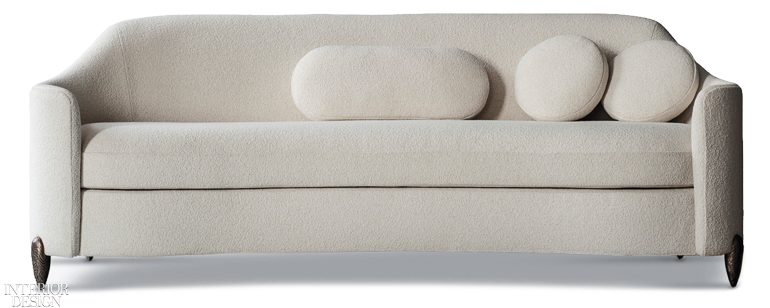
Drift Sofa. This custom sofa has a curved back and curved arms, loose seat cushions, and hand-cast solid satin bronze legs.
Image courtesy of: Interior Design, photographed by: David Mitchell
It is quite important for DeMuro Das to titrate both aesthetics and functionality. The beautiful pieces that come out of their factory need to be long-lasting, comfortable, and “easy on the eyes.” They always make sure to recognize the meaning of “function” in their objects… rather than simply designing pieces purely for the way they look.
Sustainability is also important to the pair; and now, it is more important than ever. Clients are requesting the production of socially conscious items rather than items that are “interchangeable and disposable.” No longer is there a desire for getting something new just because “it’s new.” In such, DeMuro Das hopes their clients understand that well-crafted pieces are worth cherishing, loving, and holding onto for the long haul.
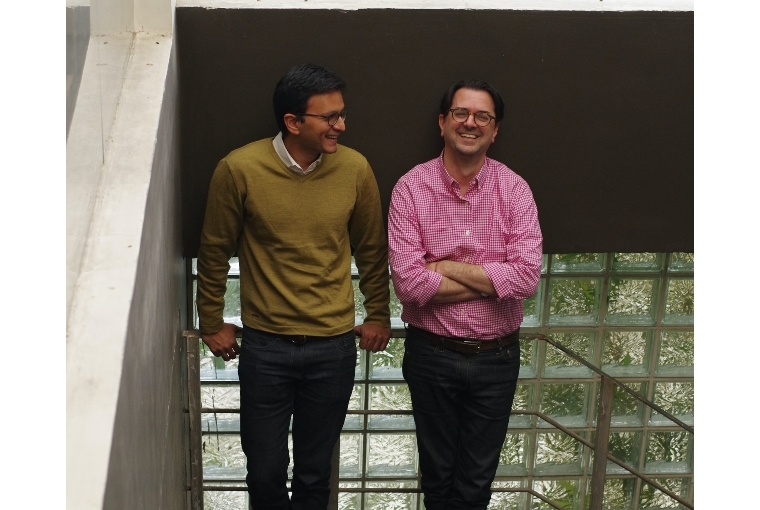
Puru Das and Brian DeMuro
Image courtesy of: Platform Creative Lifestyle
We believe that this statement from the duo regarding “what good design is and what role should design play in our world” says it best (courtesy of an interview with Shruti Kapur Malhotra for Platform Creative Lifestyle), “In our practice, good design is something that remains utterly borderless. Design should strive to move us forward as a society in one way or another, by bringing comfort to the user, increasing visibility on a cultural issue, or pushing previously set boundaries of production. There is room within this world for a whole gamut of design, and we believe that diversity is paramount to the landscape of design as a whole.”
